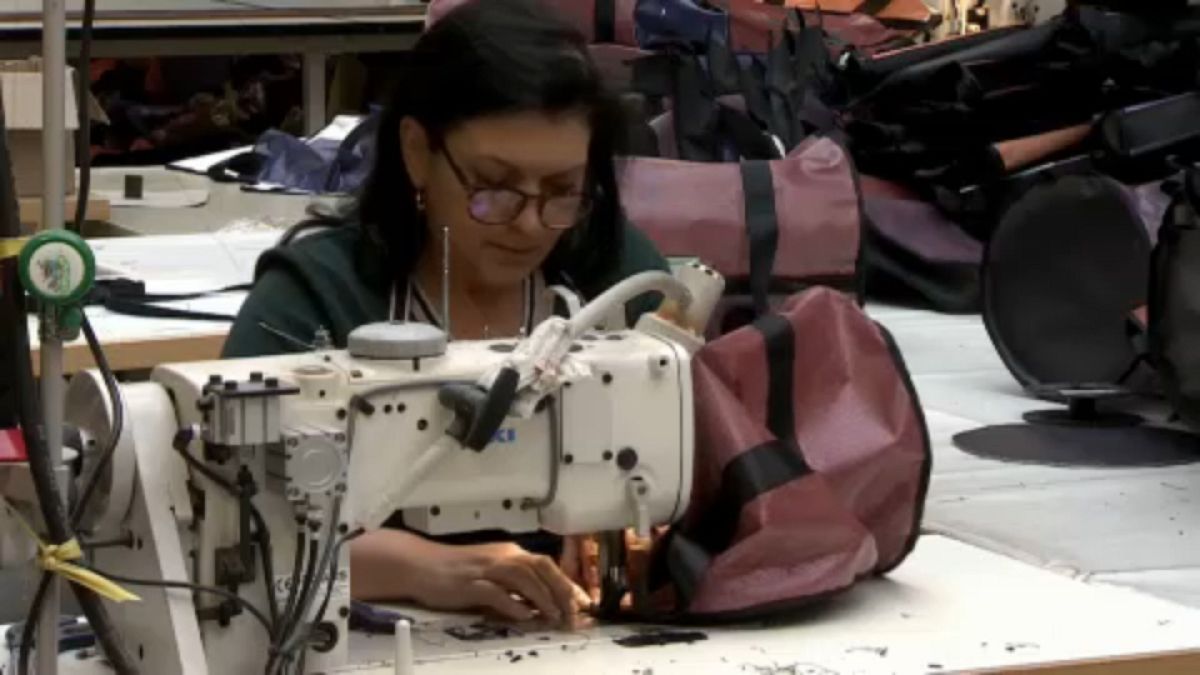The EU's Berlaymont building at the heart of Brussels' European district has set the objective of becoming carbon neutral by the end of the decade. And one small Belgian company is helping it to do so, recycling the huge campaign banners that hang from its walls.
The European Commission's Berlaymont building is aiming to become carbon neutral by 2030.
The ambitious target is part of a wider environmental plan that includes recycling the huge campaign banners that hang from the building's walls.
Designpoint, a company from just outside of Brussels, employs 15 people with minor disabilities to convert the used posters into bags for sports, shopping and even for cycling.
"We are currently producing 500 articles. And these 500 articles, on average, come from a 250 square metre banner. So practically the whole of each Berlaymont banner," Jean-Luc Théate, head of Designpoint, told Euronews.
But the Commission is not the company's only client.
On average, they receive over 2,000 square metres worth of banners each year. The workers then transform them into almost 3,000 different items.
In just over 10 years, the business has received the equivalent of 15 football pitches in raw material, and the work is always done by hand, not just for ethical reasons, but also technical ones.
"We are in a somewhat low-tech business, so the tools that are used in this workshop are mainly sewing machines. There is no digital cutter. Each part is cut by hand. But the fact that the work is done by hand allows for each bag to be unique," Théate explained.
But the textile workshop only represents a small part of the company. The majority of its business is in paper shaping. They see their future, however, in the recycling of plastic, like with banners.
"Our customers want to develop the social and sustainable aspects that the company advocates because we produce a lot of elements that aim to replace plastic," Benoît Lhost, Director of APAC, said.
Recycling campaign banners is not the only green initiative that the European Commission is involved in either. It's also engaged in other efforts to increase the building's green credentials, as the Commission's spokesperson for Climate Action and Energy, Tim McPhie, explained to Euronews.
"We basically reduced, trying reduce our footprint across the boards so whether it's talking about wastes, products we get ride off or the carbon footprint. So, for example, our use of paper has gone down by 71% from 2005 until 2018. We've reduced the energy use in our buildings by over 60% in the same time."
But with global climate goals becoming more ambitious by the year, even the Berlaymont will have to be more inventive if it is to become carbon neutral by 2030.
